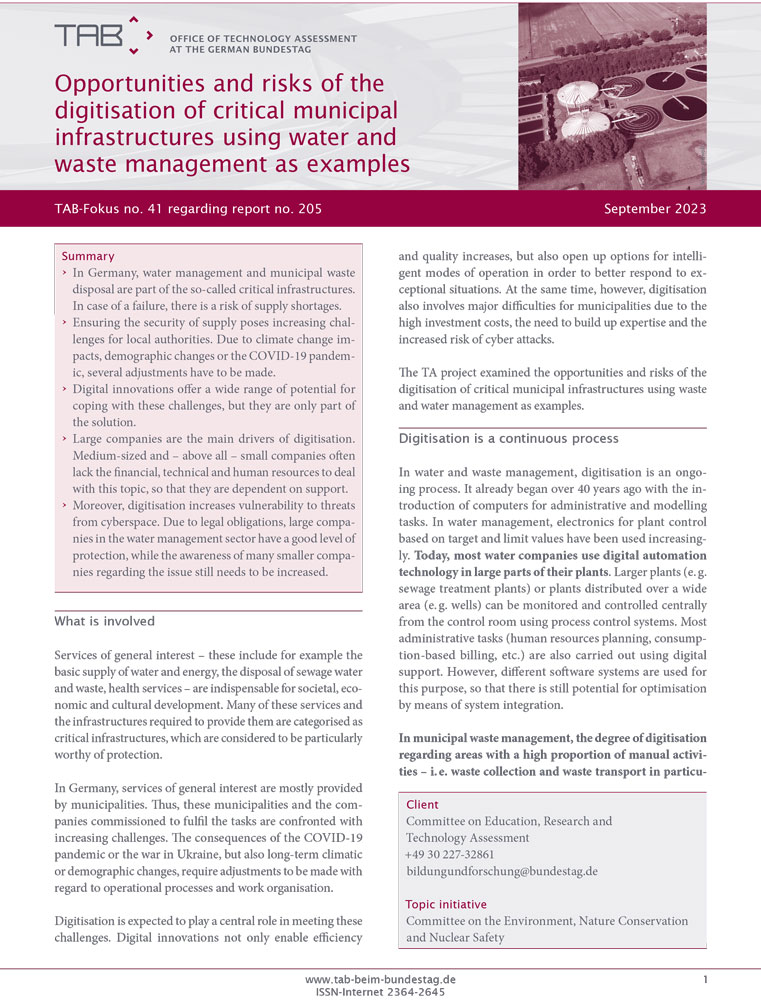The digital future of critical municipal infrastructures: opportunities, risks and policy options.
A new TAB report examines the use of digital solutions in water and waste management and identifies ways in which the potential of digitalisation can be exploited in a sustainable way, while at the same time ensuring security of supply and disposal. The corresponding Policy brief is now available in English.
Digitisation is one of the key tasks for municipalities and municipal companies in the future. As in other contexts, the impacts and opportunities in the critical infrastructure sector are diverse. Water utilities are increasingly faced with the challenges of prolonged droughts and changes in resource availability. For example, continuous information on water supply can support decisions on the careful use of water resources in near real time using digital solutions. In the future, digital solutions could be used to continuously and automatically monitor the quality of drinking water in the distribution network in order to identify risks at an early stage. Digital solutions can also help make better use of existing reservoirs to minimise the release of problematic substances into water bodies during heavy rainfall. In municipal waste management, the collection and transport of waste is still comparatively under-digitised. However, many administrative tasks are already largely digitised. The potential for resource recovery in a circular economy lies primarily in the transfer of information to upstream and downstream stages of the value chain.
It should be noted that such a far-reaching digital transformation poses enormous challenges for local authorities. In addition to the high investment costs for the necessary IT infrastructure, there is often a lack of suitably qualified specialists for implementation. Local authorities are also increasingly having to deal with the potential risks of digitisation, for example in the area of IT security or data protection.
It is clear that the digitisation of waste and water management needs to be designed in a way that maximises its potential and minimises negative consequences.
The full report (TAB-Arbeitsberich Nr. 205) examines the potential and limits of digitisation for the individual stages of the value chain in both sectors. It also analyses the challenges in terms of cybersecurity. Options for policy action are derived from the analysis in order to shape the digital transformation in a sustainable way.
Key findings are presented on the project page. The corresponding Policy Brief TAB-Fokus issue no. 41 provides a compact summary of the report on four pages.
17.11.2023
Downloads and further information
-
TAB-Fokus no. 41
Opportunities and risks of the digitisation of critical municipal infrastructures using water and waste management as examples (PDF)
doi:10.5445/IR/1000164519 -
TAB-Arbeitsbericht Nr. 205 (in German only)
Chancen und Risiken der Digitalisierung kritischer kommunaler Infrastrukturen an den Beispielen der Wasser- und Abfallwirtschaft (PDF)
doi:10.5445/IR/1000163177 - Project page: Opportunities and risks of the digitisation of critical municipal infrastructures using water and waste management as examples

